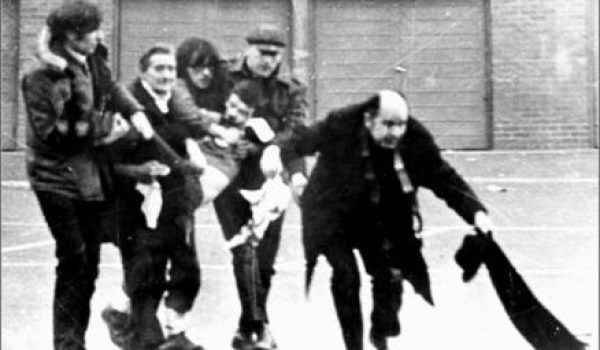
The Full Capacity Protocol has been implemented at Letterkenny University Hospital.
Management at the hospital apologise to patients and their families for delays as the Emergency Department remains extremely busy today.
According to the latest trolley and ward watch figures there were 40 people awaiting admission at the hospital this morning, 16 of those on trolleys in the Emergency Department.
Management at the hospital would encourage the public to attend the Emergency Department only in the case of real emergencies and to contact their GP or GP Out-of-Hours service in the first instance.
The Hospital say they are also experiencing an increase in the number of patients with flu symptoms.
Cathaoirleach of Donegal County, Councillor Gerry McMonagle says as the crisis continues, reports are emerging from the hospital of patients sharing cubicles and sleeping on the floor:
Statement in full:
The Emergency Department at Letterkenny University Hospital remains extremely busy today with significant numbers of patients awaiting admission to the hospital. We apologise to patients and their families for these delays. The Full Capacity Protocol has been implemented and all efforts continue to be made to identify patients who are appropriate for discharge.
Management at the hospital would like to advise people who are attending the Emergency Department at Letterkenny University Hospital that they can expect delays. We would like to remind the public that we encourage them to attend the Emergency Department only in the case of real emergencies and they should contact their GP or GP Out-of-Hours service in the first instance.
Letterkenny University Hospital again apologises to all patients and their families for any distress caused as a result of these delays.
The Hospital is also experiencing an increase in the number of patients with flu symptoms.
We would like to remind the public to take into account the following points if considering coming to the hospital:
- Visitors should refrain from entering the hospital if they have flu-like symptoms (fever, cough, runny nose, sore throat, headache, muscle and joint pains, malaise)
- Most people with flu symptoms recover in 2-7 days
- Persons with flu-like illness should Contact their GPs for advice if they start to feel worse or are 65 years or older or have a long term illness
- Children under 2 years old with flu-like illnesses should visit their GPs
- Pregnant women with flu-like illness should attend their GPs or if coming to the hospital, need to phone in advance so that appropriate measures are taken
- Remember that antibiotics do not work against the flu virus
- Get the flu vaccine (recommended e.g. in pregnancy, in >65 y.o, persons with a chronic illness, healthcare workers)
- If you have a flu-lke illness: cover your nose and mouth when coughing, discard tissues in the bin immediately after use, wash hands or use alcohol-based hand rub after discarding tissue, if no tissues use shoulder/elbow to cover mouth- do not use hands
Issued on behalf of the Saolta University Health Care Group
Podcast: Play in new window | Download






